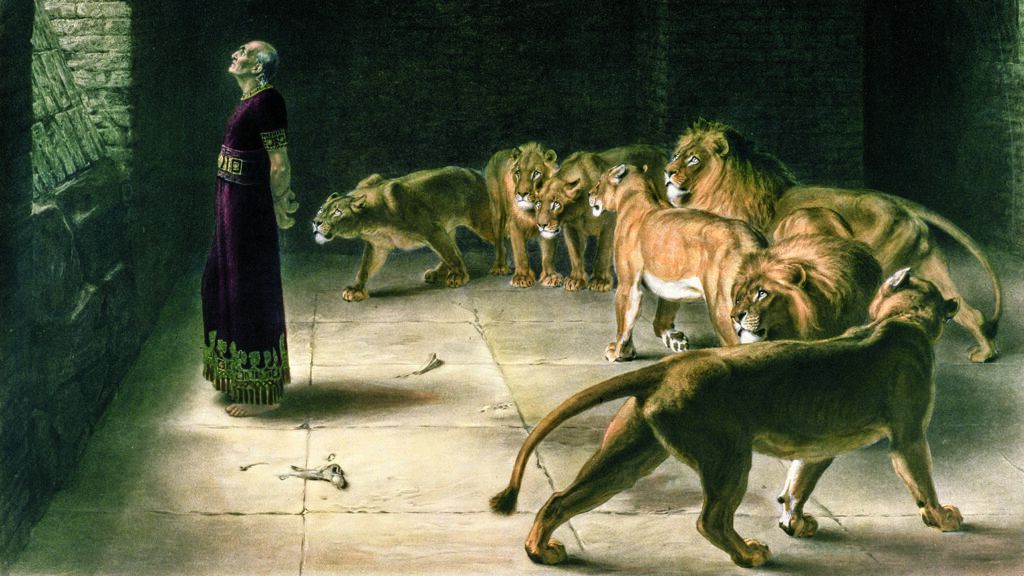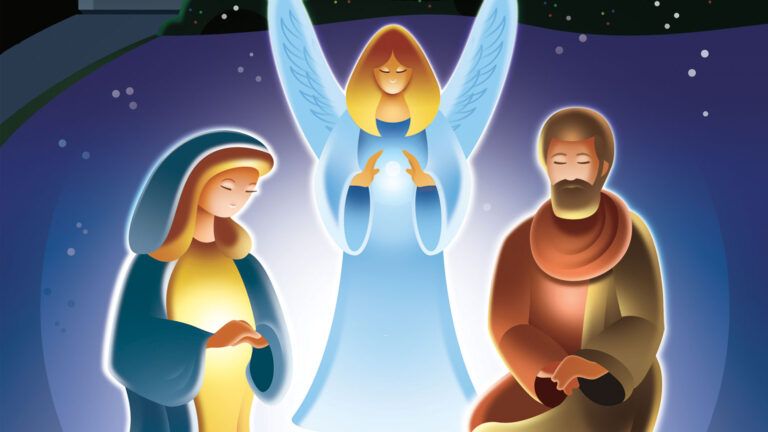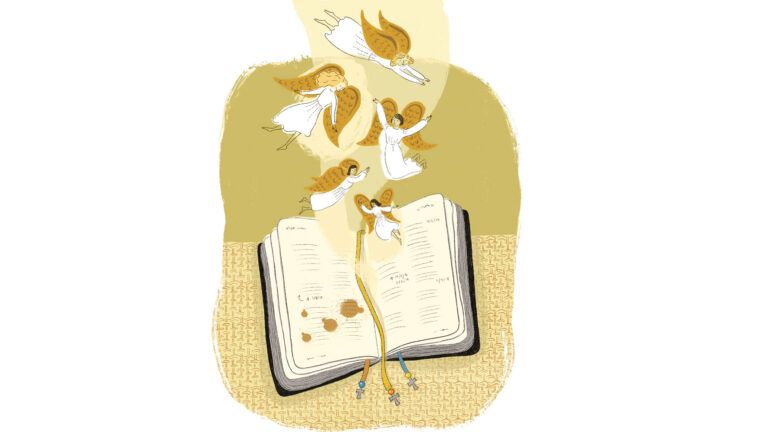Ever try to figure out what your dreams mean? I scribble mine down first thing in the morning, when I can still remember them. Later I look at what I’ve written and wonder, What in the world is this dream saying to me? No doubt about it, God speaks to us in our dreams. That’s clear from countless biblical examples. But on a recent rereading of the book of Daniel, I was reminded that even an expert at dream interpretation, like him, sometimes needed angelic help.
The first thing that always comes to mind about Daniel is his being thrown into the lions’ den. A gifted and talented observant Jew, he was asked to serve more than one Persian king during the time of the Babylonian captivity. His enemies at court, jealous of his power, conspired against him by creating a law that anyone who prayed to anyone other than the king would be thrown before the lions.
No way was Daniel going to deny his God. He was called out, and the king was forced to observe the law. A stone sealed the mouth of the den that held his loyal servant—and the lions. The next day the king hurried to see what had happened. There was Daniel, alive and hardy, praising God and acknowledging the angel that had held shut the lions’ mouths. Daniel emerged from the den unscathed. His enemies at court weren’t so lucky when the king had his way with them.
So many popular expressions come from the book of Daniel. Feet of clay, for instance, refers to the dream King Nebuchadnezzar had. In the dream he saw a huge statue with a head of gold, chest and arms of silver, thighs of bronze, legs of iron, and those feet, well, partly iron and partly clay. Daniel’s interpretation was that Nebuchadnezzar, with all his power, would still contend with vulnerabilities. Feet of clay.
Or consider the expression the writing is on the wall, referring to a forecast of coming doom. At this point in the story, Nebuchadnezzar’s son Belshazzar has become king. In his father’s conquest of Jerusalem they had stolen the vessels of gold and silver from the temple, and the king and his mistresses and wives and lords were using them to drink wine and praise false gods. Until the fingers of a human hand appear out of nowhere and begin writing on the palace’s plaster wall.
Who can read this foreign writing? Who can interpret what it says? Daniel is sent for and risks all to tell the truth. As he reports, things do not look good for Belshazzar. Not by a long shot. He has not humbled himself before God and has misused the sacred vessels. His days were numbered. In fact, even after quickly promoting Daniel in a desperate attempt to save himself, King Belshazzar dies that very night. So much for reading the writing on the wall.
There is another wonderful story in the book about how an angel—or maybe it was God himself—appeared in a fiery furnace and rescued Daniel’s compatriots, Shadrach, Meshach and Abednego. When these three young men did not bow and worship a mighty golden statue that the king had set up, they were escorted into the inferno, whose heat was increased sevenfold. If I imagine my own oven, often set at 350 degrees, we’re talking about 2,450 degrees! The escorts were immediately obliterated. But as the king watched from above the flames, he saw Daniel’s three friends walking through the fiery furnace—with a fourth in their midst, a fourth who had the appearance of a god. The three young men were released, not a hair on their heads singed, their tunics hardly damaged. The king is forced to praise not only the God who protected them and walked with them but also the angel who was sent to deliver them.
What I find especially impressive about Daniel is that he doesn’t solely interpret the dreams of kings; he can actually recount one before it’s even been recounted. He possesses that kind of mind. No wonder he was granted such privilege and power. So it comes as a bit of a relief to me when, toward the latter part of the book, in chapter eight, Daniel reveals that he too can be flummoxed by a dream. Not one from a king this time, but one of his own.
In this dream he sees a ram standing beside the river. The ram has two horns, one longer than the other. All beasts were powerless to withstand this ram, who did as it pleased. Until the ram came upon a goat with one horn between its eyes (that proverbial locus of inner vision). The goat threw the ram to the ground and trampled it. In the scuffle, the goat’s great horn was broken, and four more horns, marking the four winds of heaven, grew in its place.
Wouldn’t you be baffled? Just reading it, I’m clueless (as I often am when I study one of those dreams I’ve scrawled in the morning). And so was Daniel. The dream goes on, as dreams often do, and Daniel doesn’t know what to make of it. He can’t understand it at all. Then a figure appears before him. Who is it?
It’s an angel, of course. To confirm, Daniel hears a voice saying, “Gabriel, help this man understand the vision.” None other than Gabriel—the angel Gabriel—was sent to help Daniel interpret his dream. As we’ve seen before and will see again in the Good Book, Daniel—even visionary Daniel—is overcome with fear and falls down prostrate before God’s messenger. (Note to self: The appearance of an angel can initially be quite frightening.)
Gabriel describes what the dream means in more mundane terms. (Second note to self: Angels can be quite practical.) The horns of the ram represent the kings of Media and Persia. The goat with a single horn represents the king of Greece. The four horns that grow from the single horn predict the four kingdoms that will arise when the king’s vast land is conquered and divided. A bit of history foreshadowed.
I find all of this oddly reassuring. To think of my own life, to think of our own history and all the prognostications that are made by experts, and to realize that in the end God has the last word, God has the ultimate understanding. We might see “through a glass darkly” in this life, as the Apostle Paul put it, but in the next, there is the promise of clear vision.
In the meantime, I continue to record my dreams, and I turn to others to understand them, talking to a therapist or a friend, consulting a book or listening to what might come to me in meditative prayer. God does speak to us in our dreams. But don’t be shy about asking for help to understand what he might be saying. Angels are here to lend a hand.
Did you enjoy this story? Subscribe to Angels on Earth magazine.






